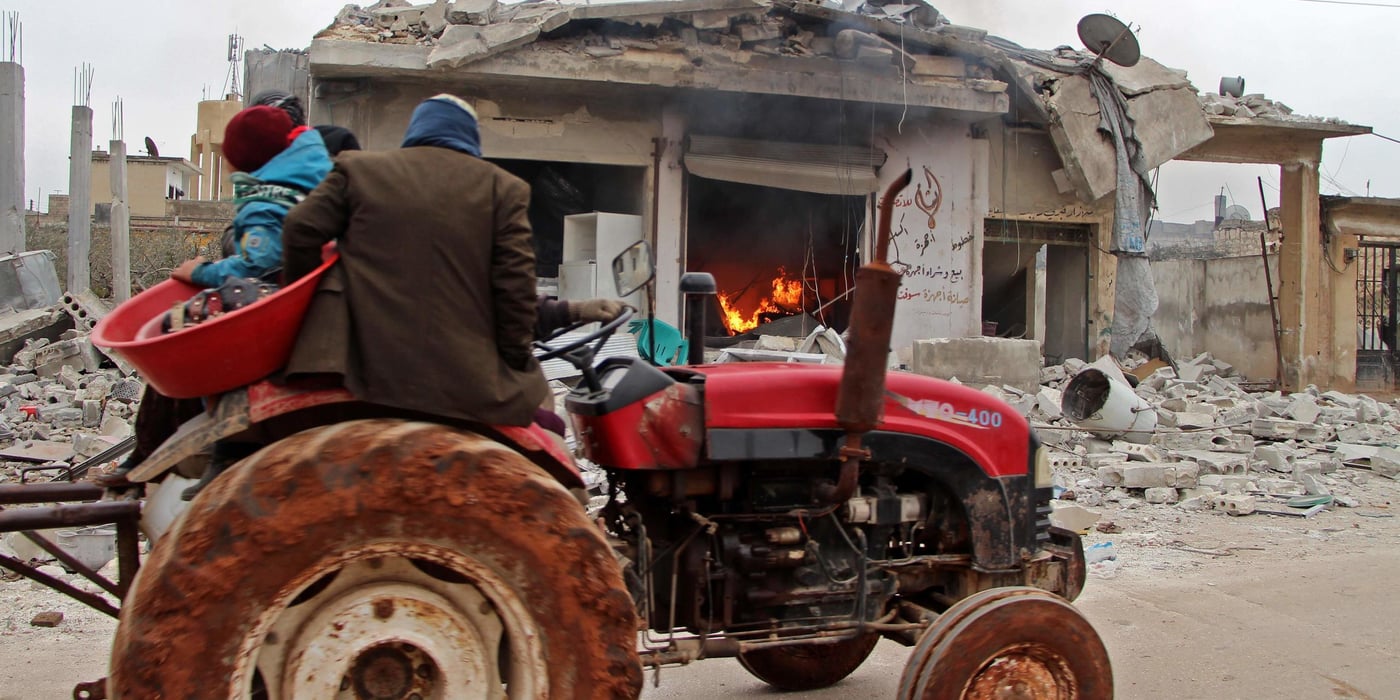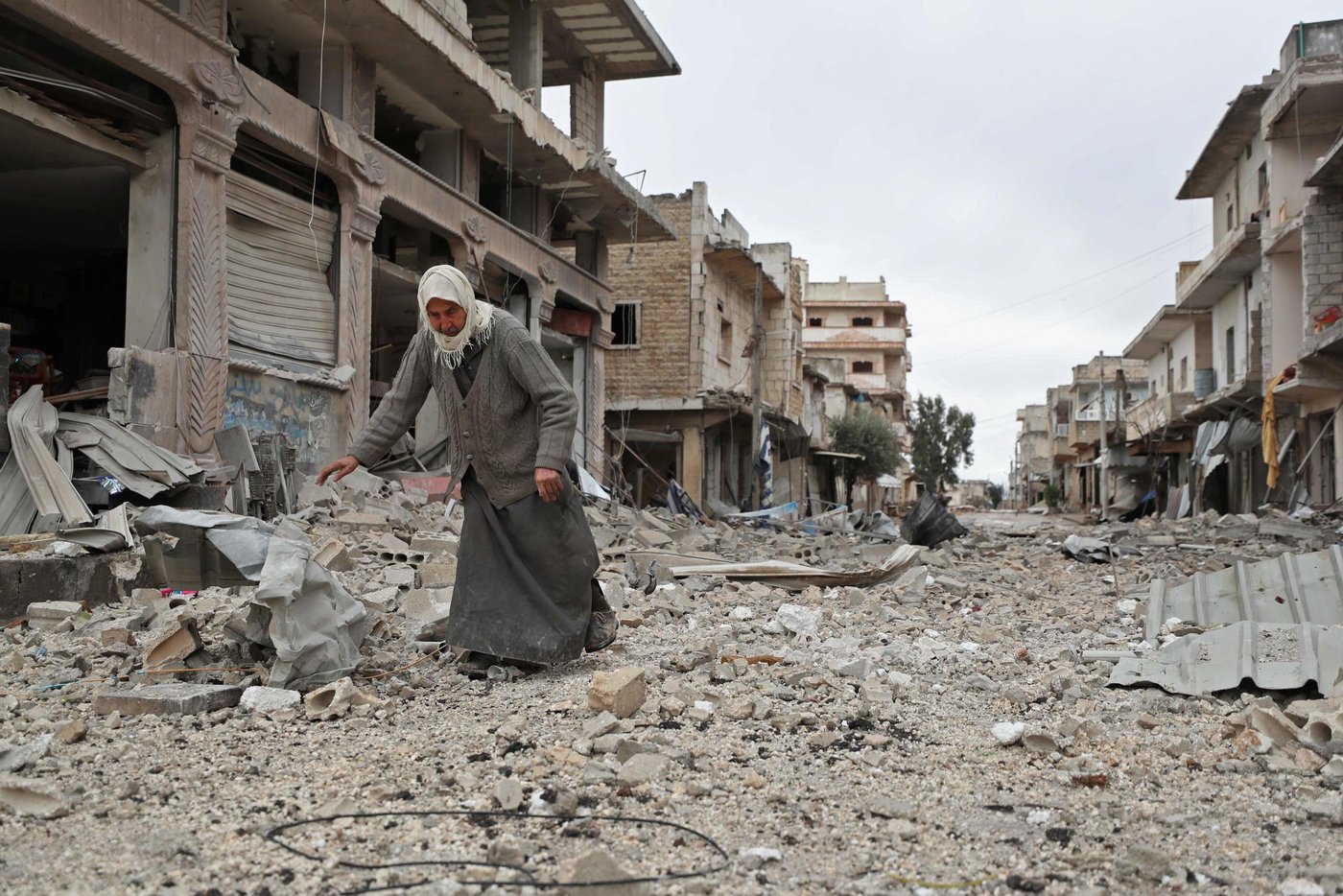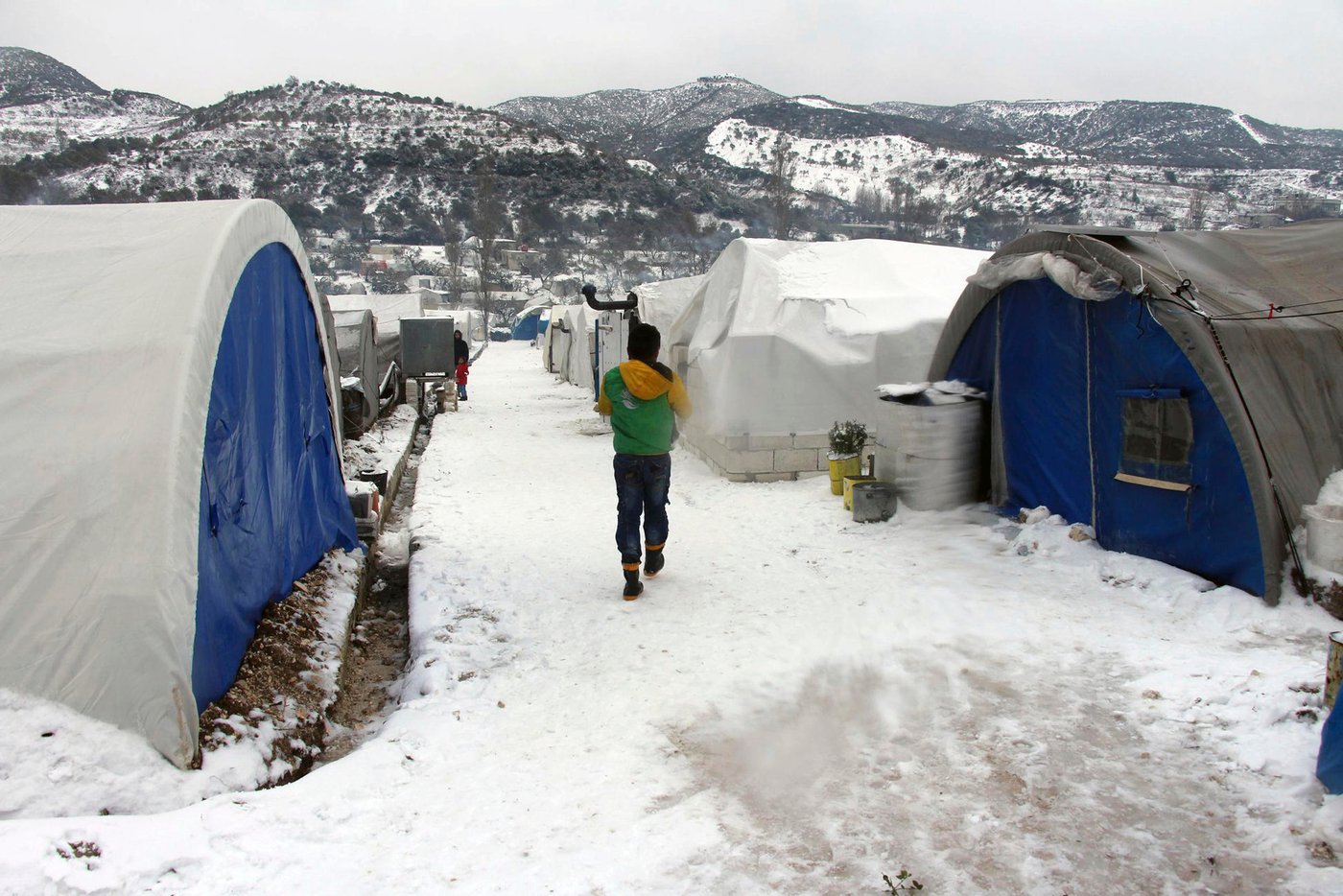
The humanitarian crisis in north west Syria has reached a horrifying level with almost 900,000 people displaced between 1 December and 20 February, according to the United Nations Office for the Coordination of Humanitarian Affairs (OCHA).
“Fighting in north west Syria has resulted in the largest displacement throughout the nine-year conflict in Syria. More than 900,000 displaced people face precarious conditions as they try to flee towards areas over-burdened after consecutive waves of displacement,” says Angelita Caredda, Director of the Norwegian Refugee Council’s (NRC) Syria Response Office.
Dramatic escalation in Idlib
The majority of women, men and children who have fled their homes to escape attacks have moved to north western Idlib governorate, a small area already hosting hundreds of thousands of displaced people. The entire population of the Idlib area, estimated at three million people prior to the latest wave of violence, is increasingly concentrated in a small area along the Turkey-Syria border with no other place to go to find safety.
“The only way to truly protect the three million women, children and men now caught in the crossfire is to prevent the violence from spiralling any further. The most recent wave of mass displacement further strains an already stretched humanitarian response, especially as hundreds of aid workers have become displaced themselves,” says Caredda.

Alarming situation
The humanitarian community is doing everything it can but is overwhelmed by the scale of needs. An immediate end to the violence is critical. More resources, including funding, are immediately needed to save lives and alleviate people’s suffering.
Some 60 per cent of the 900,000 people displaced in north-west Syria are children, and number of children are reported to have died due to the freezing temperatures.
Aid agencies are once again adapting to the shifting context to keep reaching the most vulnerable, seeking approaches that will allow them to reach Syrians through the most direct means. Humanitarian organisations have a duty to stay and deliver so long as conditions allow, but it is becoming increasingly dangerous to operate as no place is currently safe in Idlib.

Urgent needs
Due to the high number of people who have fled their homes in the past two months and the rapid population movement, humanitarian needs in north west Syria are increasing exponentially. Shelter, non-food items, food and protection assistance continue to be the most pressing needs.
At least 93 per cent of the newly displaced individuals have identified shelter as a main need.
“Displaced people in north west Syria are struggling to find shelter. Families in Idlib are being turned away from overcrowded camps and are in dire need of shelter, mattresses, blankets and food. This is forcing tens of thousands to sleep out of the open and in unfinished buildings in freezing temperatures,” says Caredda.
Scale up the funding
The humanitarian response has managed to secure less than a third of the funding needed to meet the needs of 900,000 people until July 2020.
Funding is still required to support the humanitarian response across Syria: About two thirds of people in need of humanitarian aid in Syria are now in areas under government control. NRC calls on donor countries not to abandon them and instead scale up their funding for programmes to help these civilians.
People affected by war and displacement have the same right to assistance, irrespective of who is in control of the territory. It does not matter if the government or an armed group controls the area, and it should not matter to donors. At the same time, we call on the Syrian government to lift its restrictions on aid, especially in the form of bureaucratic impediments and excessive delays in approving aid delivery.
Host countries and returns
NRC is also calling for donors to continue supporting the 5.7 million Syrian refugees still living in Syria’s neighbouring countries. While the majority of these refugees tell us that they wish to return to Syria in the future, they are still scared to do so because of fighting, lack of essential services and fear of retribution. Jordan, Lebanon and Turkey need to ensure these people can continue to live in safety and dignity, and the international community must support them to do so.
NRC in Syria
NRC is one of only a few agencies operating across all of Syria. Against a backdrop of intense conflict, we work to provide emergency, transitional and longer-term assistance to people in need. NRC reached over 400,000 people in need in Syria in 2019.
NRC is also assisting Syrian refugees in neighbouring countries, including Iraq, Lebanon and Jordan.


